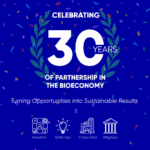Low Carbon Fuel Standard (LCFS)
It appears that low carbon fuel standards continue to spread, as even the historically most polluting companies seem to be embracing the idea that the health benefits and sensitivity to global warming are good for their bottom line. There continues to be ever-greater goodwill seen by companies that show progress in reducing greenhouse gas emissions. What began as the Low Carbon Fuel Standards in California and have now been expanded to Oregon, and Washington. Some states have considered and are considering an LCFS, including Colorado, Minnesota, New Mexico, and New York. There are states considering the creation of a regional LCFS (like the Midwestern Clean Fuels Policy Initiative). Many foreign countries and regions also have implemented or proposed Low Carbon Fuel Standards.
Low carbon fuel standards (LCFS) are designed to reduce greenhouse gas emissions from transportation fuels. A California executive order was passed in 2007 that called for a reduction in the carbon intensity of California’s transportation fuels by 2020 by at least 10% with a proposal to increase the GHG reduction requirement. Carbon intensity is measured in grams of carbon dioxide equivalents (g CO2e) per unit energy (MJ) of fuel and is quantified on a life cycle basis.
The LCFS utilizes a market-based solution to the need to reduce carbon emissions. Regulated parties include all producers of transportation fuel sold in the state. Petroleum refiners who produce gasoline and diesel transportation uses are typically regulated entities. Renewable fuel producers of low carbon intensity products can opt in to the system in order to be able to sell carbon credits. Each fuel provider is required to ensure that the carbon intensity of the suite of fuels they produce meets the carbon intensity target for that year.
The CI of fuels is determined by the CA_GREET2 model. In 2019, the CA_GREET3 model, which has more recent data on upstream emissions, will be used to determine CI. Fuel producers will need to switch to the CA_GREET3 model before the end of 2020. In addition, starting in 2020 fuel producers will also need to verify their CI with a verification tool. Fuel producers will need to navigate the change in CI values as these regulations come into effect.
The best renewable energy and biochemical consulting firms have experts in a wide variety of bioeconomy specialties, including LCFS and RIN experts. They should also have experts in renewable fuels, renewable chemicals, feedstocks, biotechnologies, bioproducts, and all areas of sustainability, synthetic biology, emerging technologies, and waste management. They should be able to provide clients with expertise for projects and be available as expert witnesses in matters within the bioeconomy.
With over 150 consultants worldwide, LEC Partners has the diverse experts and geographical reach to assist in virtually any bioeconomy project, including Low Carbon Fuel Standards, RINs, Carbon Intensity, and Renewable Federal Funding options. Our highly qualified teams bring a unique integration of technical, scientific, regulatory, and hands-on experience to any project. Look at our experts and the services we provide. Most of our experts are also available to advise and serve as expert witnesses in bioeconomy litigation matters. For the larger projects, we specialize in putting together full-service, interdisciplinary teams with one point of contact. See a video about LEC here. Call us at 1+ (501) 833-8511 or email us for more information.
Have some questions?
Not sure where to start?
Let's start a conversation. We're here to help you navigate
the bioeconomy with confidence.

